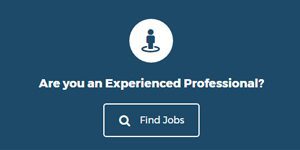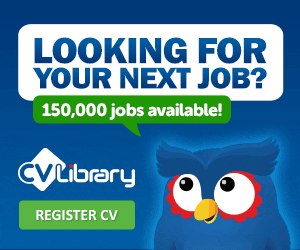After uni, a lot of graduates dive head first into the job hunt. It’s understandable to want to secure employment as soon as possible before the post-uni existential dread kicks in. However, grads, first you need to stop and take a deep breath. There is no golden rule that will tell you how to find a job after university but there are ways to make the process a lot less stressful. Are you really ready to get started?
Searching for a job is no easy task, even for the most experienced of job hunters. So, don’t beat yourself up if you’re not too sure where to start or for feeling a little daunted by the prospect! The best way to make the job hunt as smooth and successful as possible is by making sure you’re fully prepared.
Yes, you know you’re ready for a job – but are you ready to try and find it? Here are some questions to ask yourself before you start your search.
Do you have a plan?
The first thing you need to do before you send even one single application is to have a plan in mind. There’s no point applying to every job advert in sight, even if you meet the requirements. As much as you have to be right for the job, there will be no mileage in applying for roles that aren’t a good match for you.
Think about what industry you want to work in and where you’d eventually like to end up. In time, this goal may change, however it’s extremely helpful to have a target in the meantime. Do your research surrounding the industry and the typical progression path involved.
It’s likely that you’ll need to work your way up, so don’t be overambitious with your expectations to begin with. Knowing where to start will really help you to focus your job search, which will ensure your time won’t be wasted.
Another thing you may need to consider is whether you want a graduate job or a graduate scheme. Not sure what the difference is? Take a look at this article to find out.
Are you self-aware?
Self-awareness isn’t just for self-help books! Taking time to reflect on who you are, and who you want to be, professionally is vital to the job hunt.
Whether it’s via an application form or at an interview, a potential employer will want to know all about you. So, what are you going to tell them? Think about what skills and talents you could bring to a role and about your strengths and weaknesses. What personality traits do you have that an employer would value?
What about your past experiences? Part time jobs, university, travelling or any hobbies and interests you have all shape you personally and professionally. So, have a think about what skills you’ve honed over time and how to link them to a work environment.
Not only will this help you complete applications and answer interview questions, but it should fill you with confidence in your abilities. Confidence is massively important when it comes to job hunting (and, remember that you’re a catch!)
Are you in the right mindset?
Anyone who’s been to uni knows how things can be. Procrastination, deadline extensions, skipping lectures and last minute exam cramming. It’s as much part and parcel of the university experience as partying and living off baked beans. However, the world of work is a whole different ball game altogether.
While ‘work hard, play hard’ certainly applies, at the start of your career you need to be focused and committed to getting where you want to be. That means that it’s time to put your game face on, it’s time to be professional.
Maintaining professionalism throughout your job hunt (and your career) is essential to success. Every interaction, be that during a phone call, via email or face-to-face, needs to be conducted in a professional manner. Your language, tone of voice and posture all need to represent you as a mature individual who is ready to work in a commercial environment.
How are you represented online?
While we all have the odd cringeworthy photo hidden somewhere on our social media pages, your online presence is more important than ever. If you apply for a job, it’s highly likely that a recruiter will do some snooping on your personal profiles.
To avoid missing out on any opportunities because of a dodgy photo or post, it’s worth having a profile clean-up. Alternatively, simply ensure that your profile picture is appropriate and edit your privacy settings to limit what people can see.
Setting up a LinkedIn profile can really boost your professional image, and it also makes you more visible to employers. Again, make sure that your profile picture is in line with how you would like to appear to recruiters.
Oh! And don’t forget about your email address! We’ve seen some dodgy ones in our time, so keep things professional.
Do you have a CV?
This is a big one. Many job hunters fall into the trap of ‘just having a look what’s out there’ before creating or updating their CV. Before they know it, they find a great opportunity… with a deadline in a few hours! Creating a CV can then feel like a mad rush, compromising its quality. Or others simply use not having a CV as an excuse not to submit an application.
Before you start browsing jobs online, make sure that you have a tip top CV to submit. Even if you create a template CV to tailor to different roles, it’s much easier to have one at your disposal.
TOP TIP: Once you have perfected your CV, be sure to upload it to CV-Library! This way employers will be able to get in touch with you about any relevant opportunities.
Are you prepared for interviews?
It may seem like we’re jumping the gun a little, but the recruitment process can move extremely quickly. If an employer likes the look of your CV, they could invite you to interview as soon as the very next day! This means that you need to be fully prepared for everything (a head start is always a good thing).
Most interviews will require you to attend in business attire, so make sure that you have all the right gear. A professional looking suit, a clean, ironed shirt/blouse, some smart shoes (NOT trainers or pumps) and a presentable documents folder will all make sure that you look the part.
If you’re relatively new to interviews, it may be worth brushing up on some tips and advice – there’s a lot out there! You can never predict what questions you’ll be asked by an interviewer, but you can still prepare some standard responses and consolidate what you want to say to really sell yourself.
Another thing that will boost your chances is making sure that you’re commercially aware and that you know about the industry that you’re applying to work within.
University may be over, but the hard work is just beginning. Venturing out into the professional arena may feel a little scary, but don’t forget what an exciting new chapter you’re embarking on! If you fully prepare for your job hunt, it’ll be a breeze.
For more articles like this, visit our blog.
Follow us on Twitter, LinkedIn and Facebook for business insights, interview tips, advice and career opportunities.







